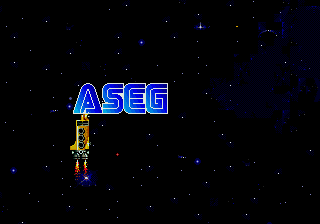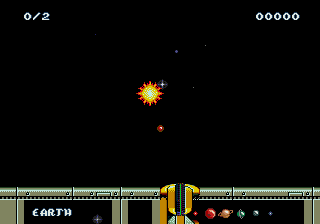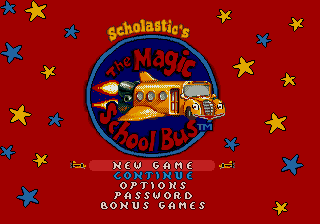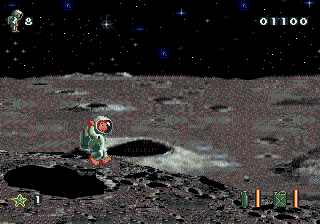Retro Replay Review
Gameplay
The Magic School Bus: Space Exploration Game places you directly in Ms. Frizzle’s famed yellow bus as it soars from planet to planet. Each celestial stop offers a unique interactive environment where players can gather facts, complete challenges, and collect images of planets, moons, and stars. The seamless blend of exploration and education means that every discovery you make becomes an opportunity to solve puzzles that test your understanding of space science.
(HEY YOU!! We hope you enjoy! We try not to run ads. So basically, this is a very expensive hobby running this site. Please consider joining us for updates, forums, and more. Network w/ us to make some cash or friends while retro gaming, and you can win some free retro games for posting. Okay, carry on 👍)
Players navigate each planetary surface using simple point-and-click controls, making it accessible for younger audiences while still engaging for older kids or parents who join in. As you explore, you’ll encounter mini-games such as matching orbital patterns, decoding moon compositions, or aligning telescopes to photograph distant galaxies. Successfully completing these tasks unlocks new bus upgrades, additional photo filters, and the ability to customize your own solar system model.
One of the game’s standout features is the “Build Your Own Solar System” mode, which encourages creativity and reinforces scientific concepts. After touring the real planets, you can place bodies of your own design in orbit, assign them unique characteristics, and observe how their gravitational pulls interact. This sandbox element transforms the knowledge you’ve gained into hands-on learning, fostering critical thinking and experimentation.
Throughout your journey, Ms. Frizzle and her lizard companion, Liz, provide contextual clues and fun commentary to guide players. Their lighthearted banter never feels intrusive, and it adds a warm, familiar presence for fans of the original PBS Kids series. Whether you’re steering the bus during takeoff or clicking your way through asteroids, the gameplay loop is both varied and rewarding.
Graphics
The visuals in The Magic School Bus: Space Exploration Game are vibrant, colorful, and faithful to the beloved cartoon aesthetic. Planets are rendered in bright, exaggerated hues that make it easy for young players to distinguish between Mars’s rusty red terrain and Neptune’s deep blue waves. The environments strike a balance between whimsical and informative, ensuring that scientific accuracy doesn’t compromise artistic style.
Character animations for Ms. Frizzle, Liz, and the student avatars remain crisp and expressive. Cutscenes employ smooth transitions, and each planet introduces its own set of animated vignettes—such as geysers erupting on Enceladus or dust storms swirling on Mars. These dynamic elements keep the world feeling alive, and they reward exploration with little surprises that will delight curious minds.
While the game doesn’t push the boundaries of 3D rendering, its 2D backdrops and simple 3D models serve the educational focus perfectly. The interface is clean and intuitive: menus, pop-up info cards, and the in-game camera controls are all easily readable without cluttering the screen. Photo-taking is especially satisfying; celestial bodies glow just enough to produce stunning in-game snapshots that encourage repeat visits.
Subtle visual cues, like color-coded outlines for interactive objects and animated arrows guiding you toward puzzle elements, ensure that younger players won’t become frustrated or lost. Overall, the graphics convey a sense of wide-eyed wonder, making space feel approachable rather than intimidating.
Story
True to the spirit of the original series, the game’s narrative is light, fun, and entirely driven by curiosity. The overarching premise is simple: Ms. Frizzle assembles her class for a grand tour of the solar system, with each episode—or level—dedicated to a different planet. There’s no high-stakes drama or unexpected betrayals—just pure educational adventure.
Dialogue is peppered with Ms. Frizzle’s trademark enthusiasm (“Wheee, off to Jupiter!”) and Liz’s occasional comedic side comments, creating an engaging rapport that remains kid-friendly. While the storyline doesn’t deviate from its mission to teach, each planetary segment weaves in story-driven mini-goals. For example, you might need to rescue a stranded satellite or map the rings of Saturn before your bus can safely depart.
The game employs short narrative segments to introduce scientific concepts in context—like gravity, atmospheric composition, or orbital resonance—before you face related puzzles. This “learn-then-apply” approach reinforces retention and feels more organic than a standalone trivia pop-up. You’re not simply reading facts; you’re actively using them to help Ms. Frizzle navigate cosmic phenomena.
While veteran gamers seeking a complex plot might find the story elements minimalistic, it’s precisely this straightforward structure that allows the educational content to shine. The gentle pacing and friendly humor ensure that players remain engaged throughout the entire solar tour, making every planetary transition feel like the next episode in an ongoing classroom adventure.
Overall Experience
The Magic School Bus: Space Exploration Game excels as an edutainment title, delivering hours of content that seamlessly fuse learning with play. Parents and educators will appreciate the curriculum-aligned topics, while children will stay captivated by the promise of hot new discoveries on each planet. The smooth progression—coupled with unlockable photo filters and build-your-own-solar-system features—ensures strong replay value.
Especially notable is the game’s adaptability to different learning styles. Visual learners will adore the richly illustrated worlds and photo journal, while kinesthetic learners gain from the hands-on puzzle mechanics. The gentle difficulty curve means that even reluctant players can experience those “aha” moments when facts click into place.
There are moments when the bus’s loading screens feel slightly long, particularly for younger attention spans, but the anticipation is often eased by fun space facts or animation loops that sneak in extra tidbits of information. Sound design and voice acting are solid, though a slightly broader variety of background tracks would have been welcome to match the changing planetary moods.
Overall, Scholastic’s The Magic School Bus: Space Exploration Game is a well-crafted title that brings science to life with style, substance, and the infectious enthusiasm of Ms. Frizzle’s classroom. Whether you’re a curious kid or a nostalgic parent, this adventure will leave you eager to look up at the night sky and ponder the mysteries of our solar system.
 Retro Replay Retro Replay gaming reviews, news, emulation, geek stuff and more!
Retro Replay Retro Replay gaming reviews, news, emulation, geek stuff and more!









Reviews
There are no reviews yet.